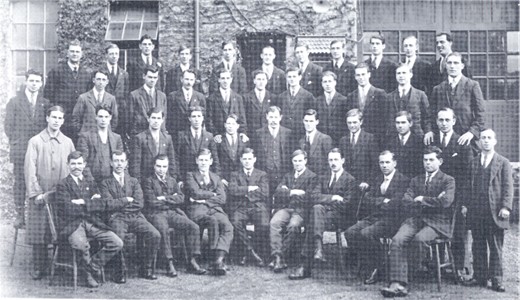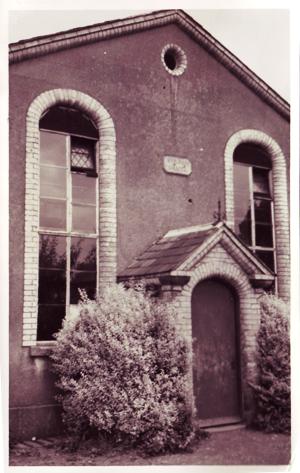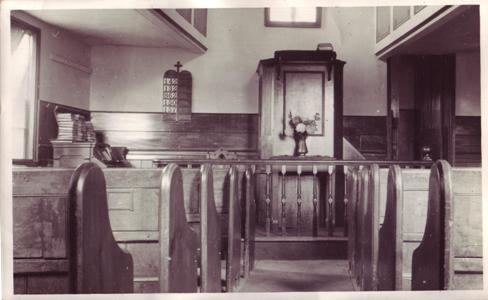|
|
Apsley or Apsley End |
|
|
|
Apsley or Apsley End |
|
|
APSLEY END is an ecclesiastical parish formed from the parishes of Hemel Hempstead, Abbots Langley and Kings Langley, 31 May, 1873. ... The living is a vicarage, net yearly value £250, in the gift of A. H. Longman Esq. and Sir John Evans K.C.B. and held since 1897 by the Rev. Robert Marmaduke Rosscier. |
|
|
The Church of St. Mary at Apsley End was opened for public worship in 1871. It was consecrated at a ceremony on 31st August 1871, by the Bishop of Rochester. The first Vicar of St. Mary's was Rev. D. Ingles M.A. John Evans served as vicar's warden of St. Mary from 1871-1896 and was followed in this role by his son, Lewis Evans, between 1887-1894 and 1899-1902. The Church of St. Mary's was built by Messrs. Bell and Son of Saffron Walden, to a design by Diocesan architect Joseph Clarke F.S.A. The main structure of St. Mary's has rough flint walls and quoins with dressings of Ancaster stone. To this day, its impressively proportioned shingled spire dominates the surroundings. The tower of the church has six bells with a combined weight of 55 cwt. The donor list for these bells reads like a who's who of the leading lights of Victorian Apsley. The tenor bell was the gift of Charles Longman (1809-1875), the High Sheriff of Hertfordshire, the second bell was given by the First vicar, Rev. Ingles, the third was the gift of John Evans FRS (1825-1908), the fourth donated by Frederick Pratt Barlow (1815-1885), who had married John Dickinson's eldest daughter Frances in 1840, and the fifth was the gift of John Dickinson Junior (1815-1876) the only surviving son of the founder of Apsley Mills. |
|
||
|
[Brief extract from the illustrated description of Apsley in A Hertfordshire Valley] |
|||
|
|
Domesday Book mentions the mills of Hemel Hempstead, and there is a paper mill at Apsley End which gained a 19th century reputation by supplying the Government with the paper for our early postage stamps. One of the Dickinsons, its owners, discovered how to make paper in a continuous sheet, and so made possible the enormous editions of our daily newspapers; and the mill is also notable because of its association for a whole lifetime with one of the most remarkable men of last century, Sir John Evans. He was one of the partners of the mills, which were founded by his uncle, and it was in his spare time that he did the marvellous work which made him famous as an archaeologist. Arthur Mee, Hertfordshire |
|
Book: Paper Pioneers Booklet: Paper and Papermaking: An A-Z of People, Places and Terms Ephemera: Apsley Envelope Mills Social & Dance 1931 (John Dickinson) |
|
|
Web Site: The Apsley Paper Trail - a living museum where you can see a large steam-driven paper-making machine at work. For more information see A Visit to the Paper Trail |
|
| For information on John Dickinson & Co, paper makers of Apsley, see The Endless Web |

Ex-World War One service men belonging to
Kent's Warriors Club
See Apsley & Nash Mills in
Camera
Book: Apsley & Nash Mills in Camera by Peter Ward & Ray Lacey, 1989
Book: A Hertfordshire Valley includes a section on Apsley
Book: Hemel Hempstead in Camera includes some pictures of Apsley
 |
 Patricia (patricia @t teepee32.freeserve.co.uk) writes: I attach the scanned photos of Nash Mills Methodist Chapel, photographed, my aunt thinks, about 1946. The chapel was the end cottage of Chapel Row, I believe purchased and converted in 1839 and demolished in the 1950s. My great great grandmother Harriet Birchmore nee Seabrook (1852-1941) was the caretaker there and lived a few doors away at 4 Chapel Cottages. |
See also the Grand Junction (Union) Canal and But Where is Doo Little?
If you know of other books, websites, etc, relating to this place, please tell me.
| May 2010 | Link to Book - Paper Pioneers | |
| July 2010 | P C of church as thumb |